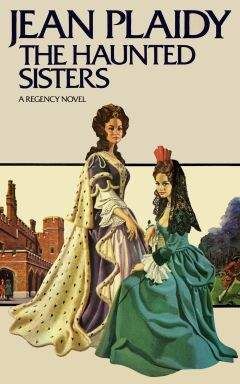Jean Plaidy - Murder Most Royal: The Story of Anne Boleyn and Catherine Howard
На электронном книжном портале my-library.info можно читать бесплатно книги онлайн без регистрации, в том числе Jean Plaidy - Murder Most Royal: The Story of Anne Boleyn and Catherine Howard. Жанр: Прочее издательство неизвестно, год 2004. В онлайн доступе вы получите полную версию книги с кратким содержанием для ознакомления, сможете читать аннотацию к книге (предисловие), увидеть рецензии тех, кто произведение уже прочитал и их экспертное мнение о прочитанном.
Кроме того, в библиотеке онлайн my-library.info вы найдете много новинок, которые заслуживают вашего внимания.

Jean Plaidy - Murder Most Royal: The Story of Anne Boleyn and Catherine Howard краткое содержание
Murder Most Royal: The Story of Anne Boleyn and Catherine Howard читать онлайн бесплатно
“I doubt not that you would, but when one feels that one can do well with one teacher. . . .”
“Bah! I know best who will make a good teacher. And why do you bother me with lessons and teachers? Dost not realize that this is to be the coronation of your own cousin Anne!”
Catherine could have wept with mortification, and her agony of mind continued.
Manox came often to the dormitory.
“Do you think I could ever leave you?” he asked. “Why, should you go to Lambeth without me I would follow.”
“And what would happen to you if you so disobeyed?”
“Whatever the punishment it would be worth it to be near you, if but for an hour!”
But no! Catherine would not hear of that. She remembered the tales Doll Tappit had gleaned of Walter the warder. She remembered then that, though she ran wild through the house and her clothes were so shabby as to be almost those of a beggar, she was Catherine Howard, daughter of a great and noble house, while he was plain Henry Manox, instructor at the virginals. Though he seemed so handsome and clever to her, there would be some—and her grandmother and her dreaded uncle the Duke among them—who would consider they had done great wrong in loving. What if they, both, should be committed to the Tower! It was for Manox she trembled, for Catherine’s love was complete. She could endure separation, but not to think of Manox’s body cramped in the Little Ease, or rotting, and the food of rats in the Pit. She cried and begged that he would do nothing rash; and he laughed and said did she not think he did something rash every night that he came to her thus, for what did she think would happen to him if her grandmother were to hear of their love?
Then was Catherine seized with fresh fears. Why must the world, which was full of so many delights, hold so much that was cruel! Why did there have to be stem grandmothers and terrifying uncles! Why could not everybody understand what a good thing it was to love and be loved in this most exciting and sensational way which she had recently discovered!
Then Catherine found the world was indeed a happy place, for when she left for Lambeth in her grandmother’s retinue, Manox was in it too.
Lambeth was beautiful in the spring, and Catherine felt she had never been so completely happy in her life. The fruit trees in the orchards which ran down to the river’s brink were in blossom; she spent whole days wandering through the beautiful gardens, watching the barges go down the river.
With Manox at Lambeth, they were often able to meet out of doors; the Duchess was even more lax than she had been at Horsham, so busy was she with preparations for the coronation. Anne visited her grandmother, and they sat together in the garden, the Duchess’s eyes sparkling to contemplate her lovely granddaughter. She could not resist telling Anne how gratified she was, how lucky was the King, and how, deep in her heart, she had ever known this must happen.
Catherine was brought to greet her cousin.
“Your Majesty remembers this one?” asked the Duchess “She was doubtless but a baby when you last saw her.”
“I remember her well,” said Anne. “Come hither, Catherine, that I may see you more closely.”
Catherine came, and received a light kiss on her cheek. Catherine still thought her cousin the most beautiful person she had ever seen, but she was less likely to idealize, because all her devotion was for Manox.
“Curtsey, girl!” thundered the Duchess. “Do you not know that you stand before your Queen?”
Anne laughed. “Oh, come! No ceremony in the family . . . No, Catherine, please . . .”
Anne thought, Poor little thing! She is pretty enough, but how unkempt she looks!
“Perhaps Your Majesty will find a place for her at court . . .”
“Assuredly I will,” said Anne, “but she is young yet.”
“On your knees, girl, and show some gratitude!”
“Grandmother,” laughed the Queen, “I would have you remember this is but our family circle. I am weary of ceremony; let me drop it awhile. What do you like doing, Catherine? Are you fond of music?”
Catherine could glow when she talked of music. They remembered how they had once felt affection, which was spontaneous, for one another, and as they talked it came back to them.
After Catherine had been dismissed, Anne said: “She is a sweet child, but a little gauche. I will send her some clothes; they could be altered to fit her.”
“Ah! You would dress up Catherine Howard! She is a romp, that child. And what a sheltered life she has led! I have kept her away in the country, perhaps too long.”
A new woman joined the Duchess’s household while they were at Lambeth. Her name was Mary Lassells, and she was of lower birth than most of the Duchess’s attendants; she had been nurse to Lord William Howard’s first child, and on the death of his wife, the Duchess had agreed to take her in. During her first week in the Duchess’s establishment, Mary Lassells met a young man who was dark and handsome with bold roving eyes, and to whom she felt immediately drawn. She was sitting on an overturned tree-trunk in the Lambeth orchard, when he strolled by.
“Welcome, stranger!” he said. “Or am I wrong in calling you stranger? I declare I should recognize you, had I ever seen you before!”
And so saying he sat down beside her.
“You are right in supposing me to be a stranger. I have been in the Duchess’s establishment but a few days. You have been here long?”
“I made the journey up from Norfolk.”
His bold eyes surveyed her. She was well enough, but not worth risking trouble with little Catherine, who, with her naivete, her delight, her willingness, was giving him the most amusing and absorbing affair he had enjoyed for a long time.
“I rejoice to see you here,” he continued.
“Indeed, sir, you are very kind.”
“It is you who are kind, to sit thus beside me. Tell me, how do you like it here?”
She did not greatly like it, she told him; she found the behavior of some of the ladies shocking. She was rather bitter, acutely feeling herself to be low-born, inexperienced in the ways of etiquette, having been merely a nurse before she entered the Duchess’s household. She had been delighted when she was offered the position, and owing to the unconventional ways of the household Mary had been accepted into it without ceremony. But among these ladies she felt awkward—awkward in speech, awkward in manners; she fancied that they watched her, sneered at her behind her back. This was pure imagination on Mary’s part, for in actual fact the ladies were much too absorbed in their own affairs to give much attention to her; but she nursed her grievances, aired them to herself with great bitterness, until they grew out of all proportion to the truth. She occupied a bed in the dormitory with the rest, but there had been no feasting nor love-making in her presence yet, as at the Lambeth house the dormitory was not so conveniently situated. Still, she could not help but notice the levity of the ladies; young gentlemen had looked in on some of them during the day; she had seen many a kiss and indications of greater familiarity. Mary had thought bitterly: And these are those who would look down on a good woman such as I am!
She told him that she did not like what she had so far seen of the conduct of those who were called ladies.
He raised his eyebrows.
“There is much familiarity between them and the young men.”
Manox laughed inwardly, thinking it would be amusing to lead her on. He feigned shocked surprise.
Warming to the subject, she went on: “Gentlemen—or those who would call themselves gentlemen—look in at the dormitory at all hours of the day. I was never more startled in my life. There was one, who would doubtless call herself a lady, changing her dress, and a gentleman looked round the door and she pretended to hide herself by running behind a screen and was much delighted when he peeped over the top. I declare I wondered whether I should not go at once to Her Grace!”
Manox looked sharply at her. The severely practical headdress, the thin disapproving lips, the pale eyes—all these belonged to a bearer of tales. She was a virgin, he doubted not—a virgin of necessity! he thought cynically; and of such material were made the tale-bearers, the really dangerous women.
He laid a hand over hers. She started, and a flush spread over her face, beginning at her modest collar and running swiftly to her flat and simply-arranged hair. She was nearer to being pretty at that moment than she would ever be.
He said gently: “I understand . . . of course I understand. But would you take a word of advice?”
She turned her eyes upon him, smiling, thinking him the handsomest and most charming person she had met since entering the house.
“I am ever ready to take good advice,” she said.
“It would be most unwise to carry tales of this matter to Her Grace.”
“Why so?”
“You have told me that you were a nurse before you came here. I am but a musician. I instruct ladies at whichever musical instrument it is decreed they shall learn to play.” His voice became caressing. “You and I are but humble folk; do you think we should be believed? Nay! It is you who would be turned from the house, were you to tell Her Grace what you have seen!”
This was fuel to the bitterness in her; she had lived in noble houses, and had longed to be one of the nobility; she saw every situation from this angle. I am as good as they are. . . . Why should I have to serve them, just because I was born in a humble house, and they in castles!
“Well I can believe that the blame would be put on me, rather than on those delinquents.”
He leaned closer to her. “Depend upon it, it most assuredly would! That is the way of life. Be silent about what you see, fair lady.”
“I cannot tell you what it means to me to have met you,” she said. “Your sympathy warms me, gives me courage.”
“Then I am indeed glad that I walked this way.”
Mary Lassells was trembling with excitement. No young man had ever taken notice of her before. The eyes of this one were warm and friendly, one might say bold. Mary began to feel very happy, very glad that she had joined the Duchess’s retinue after all.
“Do you often walk this way?” she asked.
He kissed her hand. “We shall meet again ere long.”
She was anxious to make it definite. “I shall doubtless walk here tomorrow.”
“That is well to know,” he said.
They walked through the orchards down to the river’s edge. It was a lovely spring day, and she thought there had never been any scene more beautiful than that of the river gliding by the blossoming trees. The sun, she was sure, was warmer today, and the birds seemed to sing more joyously. Manox sang too; he sang pleasantly; music was his passion, the only one to which he could remain faithful through his life. Mary thought: He means he is happy too, to sing thus.
They went into the house. That encounter had changed Mary; everything to her looked different, and people looked at her and thought her less plain than they had imagined. She hummed the song which Manox had sung; she was pleasant and smiling, forgetting the social barriers between her and most of the others. She smiled in a kindly way on the Duchess’s little granddaughter. It is well, thought Mary, that I am not of noble birth; a musician would be a tolerable match for me.
In less than a week she was rudely awakened. She had seen Manox on several occasions, and on each he had continued to charm her. On this day she went to the dormitory in the middle of the morning, having been down to the orchards, having sat for a full hour on the overturned tree-trunk, waiting in vain. She opened the door of the dormitory; the curtains were drawn back from most of the beds, and on one in a corner—young Catherine Howard’s—sat the little girl, and with her Henry Manox. They sat side by side, their arms about each other; he was caressing the child, and Catherine was flushed and laughing. It was a great shock to Mary; she stood still, staring at them. Then Manox rose and said: “Ah! Here is Mistress Lassells!”
Mary stood, struggling with her emotions, thinking: How foolish of me! He likes children; he doubtless came here on some errand, saw the child, and made much of her. But what business could Henry Manox have in the ladies’ dormitory? And had he not known that this was the hour when she would be waiting to see him in the orchards!
Manox was plausible. In his numerous love affairs he had found himself in many a delicate situation; with grace he had ever managed to set matters right, if only temporarily.
He went swiftly to Mary and said to her: “I had a message to bring here; I am really but a servant; and when I came here, the little girl needed comforting.”
She accepted his explanation; because she felt Catherine to be but a child, it did not occur to her that they could possibly be lovers. She smiled again, quite happy. Manox thought, My God! She would be a vindictive woman! And he cursed himself for having light-heartedly indulged in this mild flirtation with her. She had been so prim, so seemingly virtuous, that he could not resist the temptation; he had wanted to show her that what she lacked was, not the desire to sin, but the opportunity.
He escaped, and the situation was saved; but this could not always be so, and he would not give up Catherine for Mary Lassells.
There came a night when Manox, unable to stay away longer, recklessly went to Catherine though he knew Mary would discover this. Mary pulled the curtains about her bed, and wept tears of bitter humiliation. If she had hated the world before she had met Manox, now she hated it a thousand times more; and her hatred was directed, not against Manox, but against Catherine Howard. The wanton! The slut! she thought. And she a great lady to be! A Howard! So much for the nobility—a cousin to the Queen! And who is the Queen? Another such as Catherine Howard. Why, in this wicked world does sin go unpunished and virtue unrewarded?
Her eyes were narrow with weeping. She would go to the Duchess at once, were it not that Manox would suffer. Catherine Howard would be beaten, possibly sent away, but they would hush the matter up so that scandal should not be brought to the house of Howard. It would be Manox who would suffer most, for he was low-born like herself, of no importance; it was such as they who suffered for the sins of the nobility.
Who knew that Manox might not come to his senses, that he might not learn to cherish virtue, that he might discard that vile slut, Catherine Howard, who was not yet in her teens and yet had sunk to the very depths of wickedness! Sexual immorality was surely the most violent form of sin; for such did one burn in hell. To steal and to murder were to commit evil crimes, it was true; but what crime could compare with the wickedness of Catherine Howard!
She would not tell though, for Manox’s sake; she would hope that one day he would see his folly, that he would repent . . . that before the blossom gave way to leaves on the trees in the orchard, he would come to her and tell her he had been a fool.
He did not, and there was mockery in his eyes. One day she met him by the river, and telling herself that she must save him from his folly, she went to him, and with burning eyes and lips that trembled demanded: “Man, what meanest thou to play the fool of this fashion! Knowest thou not that an my lady of Norfolk knew of the love between thee and Mistress Howard she will undo thee? She is of a noble house; and if thou should’st marry her, some of her blood will kill thee.”
Похожие книги на "Murder Most Royal: The Story of Anne Boleyn and Catherine Howard", Jean Plaidy
Jean Plaidy читать все книги автора по порядку
Jean Plaidy - все книги автора в одном месте читать по порядку полные версии на сайте онлайн библиотеки My-Library.Info.




